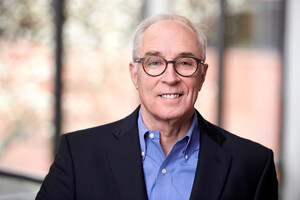Public-Private Partnership to Research Economic Challenges of Severe Convective Storms
NEW YORK, Sept. 16, 2024 /PRNewswire/ -- Severe thunderstorms, encompassing damaging winds, tornadoes, hail, and torrential rain, caused $42 billion in insured losses worldwide during the first half of 2024. In the United States, insured losses from severe convective storms have escalated by approximately 8% per year since 2008. (Swiss Re Institute). These events pose a wide range of challenges, including extensive property damage, loss of life, community disruption, increasing burdens on taxpayers, and rising insurance premiums driven by the surge in claims.
The National Science Foundation (NSF) and the National Oceanic Atmospheric Administration (NOAA) are supporting an initiative to research, and find solutions to, the challenges being caused by severe convective storms. The Cooperative Center for Interdisciplinary Research on Convective Storms (the Center) is being proposed by Northern Illinois University and the University of Wisconsin-Madison, along with key industry players. The initial meeting, held on September 12 and 13th, attracted more than 70 stakeholders, including representatives from some of the world's largest insurers.
Stephen Bennett, Chief Scientist of Demex, a risk analytics and intelligence company offering reinsurance solutions for severe convective storms, will serve as interim lead of the Center's Industry Advisory Board. Bennett is a renowned weather and climate scientist, who chairs the committee on climate-linked economics for the American Meteorological Society. At Demex, he is instrumental in developing the models that feed into its new parametric reinsurance solutions designed to protect insurers from an accumulation of severe convective storms losses.
The Center aims to understand the multifaceted impacts that convective storms impose on society and the economy. Through the partnership between universities and industry, the Center proposes to:
- Conduct Comprehensive Research: Explore the meteorological, climatic, socioeconomic, and environmental aspects of convective storms, resulting in holistic insights into their dynamics, consequences, and potential for future change.
- Develop State-of-the-Art Methodologies: Assess the risks and exposure to convective storms, including their potential for property damage, casualties, disruptions to critical infrastructure, and insured losses.
- Collaborate for Actionable Strategies: Work with industry partners, governments, and local communities to translate research findings into actionable strategies that enhance preparedness, response, and recovery capabilities, ultimately bolstering societal resilience.
- Foster Technological Innovation: Leverage emerging technologies, such as advanced modeling, data analytics, and remote sensing, to create new forecasts, climate projections, and detection algorithms.
- Train Future Scientists and Educate the Public: Equip the next generation of scientists with the necessary skills to excel in the workforce and educate the public, policymakers, and stakeholders about the science behind convective storms and their impacts, fostering a culture of awareness, proactive planning, and collective responsibility.
By pursuing these objectives, the goal is to generate actionable research that empowers societies to minimize the adverse impacts of convective storms, fostering a safer and more resilient world for current and future generations.
"The economic importance of severe convective storms is clear," said Center's Director, Dr. Victor Gensini. "Since record keeping began in 1980, there have been more than 360 distinct billion-dollar weather and climate-related disasters. Of those, more than 50% were the result of severe convective storms. The increase of these events in recent decades has had a significant economic impact and has pushed severe convective storms to the forefront of concern in the insurance industry."
Commenting on Bennett leading the Industry Advisory Board, Dr. Gensini added, "Steve is a leading figure in understanding the impacts of weather on the economy. He brings his expertise, along with know-how from Demex, who are at the forefront of creating new insurance solutions for severe convective storms."
"We are encouraging executives who can contribute to our mission to bring their collective expertise to further research and create actionable strategies to meet the challenge of convective storms," Dr. Gensini concluded.
"I'm excited to build an advisory board that will bring deep expertise and credibility to this critical, yet undervalued peril," said Bennett. "Severe convective storms present a major challenge for many insurers and have serious consequences for homeowners. This highlights the urgency and importance of the Center's mission - and is the area Demex and I have focused on researching for several years."
He added, "Average annual losses from convective storms have risen by about 8% per year since 2008, with losses surpassing $40 billion in the first half of 2024 alone. As secondary perils continue to reshape the insurance landscape, it's clear that stakeholders must prioritize strategies for research, preparedness, and loss mitigation."
The Center is part of the National Science Foundation's program for Industry-University Cooperative Research Centers, which conduct breakthrough research by enabling close and sustained engagement between industry innovators, world-class academic teams, and government agencies.
About CIRCS
The Cooperative Center for Interdisciplinary Research on Convective Storms (CIRCS) is being created by Northern Illinois University and the University of Wisconsin-Madison, along with key industry players. The National Science Foundation (NSF) and the National Oceanic Atmospheric Administration (NOAA) are supporting this initiative to research, and find solutions to, the challenges being caused by severe convective storms.
The CIRCS is part of the National Science Foundation's program for Industry-University Cooperative Research Centers, which conduct breakthrough research by enabling close and sustained engagement between industry innovators, world-class academic teams, and government agencies.
About Demex
Demex is an independent data and analytics company that partners with reinsurance brokers, insurers, and reinsurers to solve the rising challenge of frequent property losses from secondary perils. Demex models loss accumulation based on weather and claims data, informed by climate research, and provides parametric stop-loss solutions that meet the needs of insurers and reinsurers. Demex is a market-maker for a class of risk that is surpassing catastrophe losses – a cluster of losses from secondary perils that threatens not only insurers' annual earnings but also the sustainability of their businesses.
SOURCE The Demex Group

WANT YOUR COMPANY'S NEWS FEATURED ON PRNEWSWIRE.COM?
Newsrooms &
Influencers
Digital Media
Outlets
Journalists
Opted In






Share this article